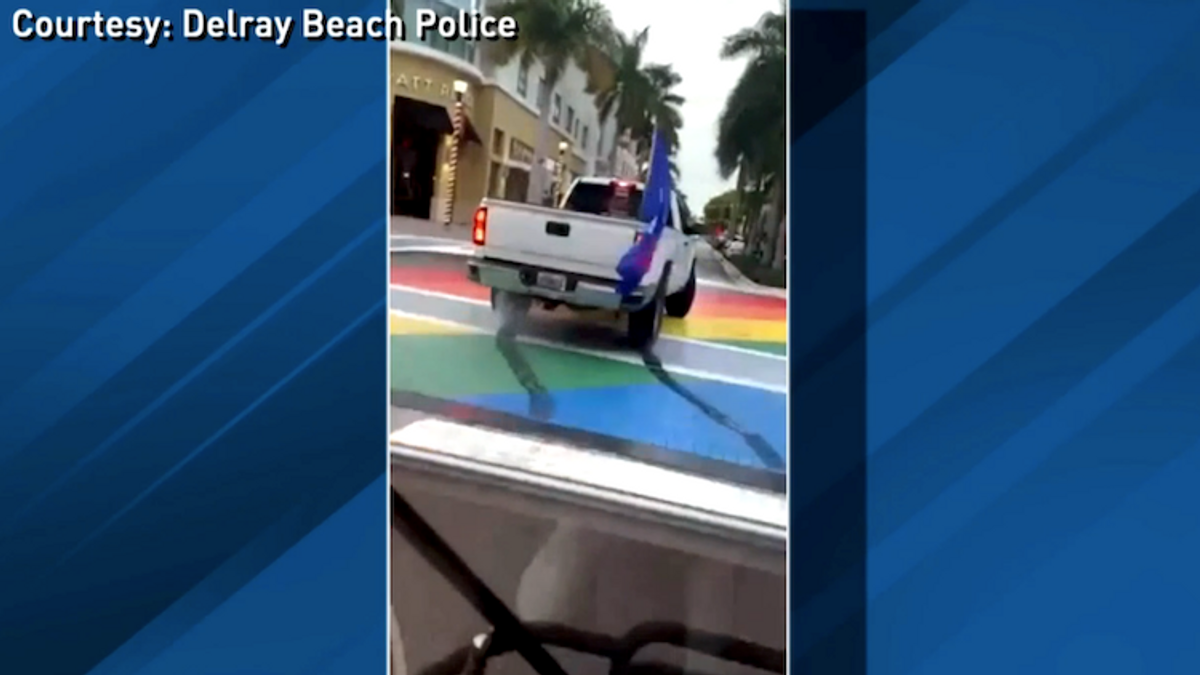Lawmakers in Florida are looking to close a legal loophole that allowed a man who vandalized a Pride-themed street painting in the city of Delray Beach to avoid a hate crime charge.
People can be charged with hate crimes in Florida for attacking someone due to their race, race or color, ethnicity, religion, national origin, sexual orientation, or age. In addition, people vandalizing private property can also be charged if they were motivated by prejudice. However, public roadways and government property don't fall into those categories.
Now, Democratic State Sen. Tina Polsky and Democratic State Rep. Emily Slosberg-King are sponsoring bills to create a new state law that would allow prosecutors a chance to pursue hate crime charges that would include defacing streets and properties that are owned by local governments or groups, reports The South Florida Sun-Sentinel.
On Twitter, Polsky wrote that she was proud to sponsor the bill. She added, "Hate has no place anywhere."
"This important bill will close a glaring loophole in state law that allows defendants to avoid hate crime charges even though their actions were motivated by prejudice," Palm Beach County State Attorney Dave Aronberg told the paper. "This bill gives prosecutors the tools needed to hold fully accountable those who harm our community with hateful conduct."
The new bills come months after a vandalism case in the summer failed to meet Florida's hate crimes definition. That resulted in complaints from many local LGBTQ+ people and advocates.
Authorities said a driver, 20-year-old Alexander Jerich, was caught on film destroying an LGBTQ-themed street painting in Delray Beach, according to the Sun-Sentinel. He did a burnout -- spinning his car's wheels while not in gear or having the emergency brake on, which leaves burn marks on the ground while the tires smoke.
The paper reports that court documents show Jerich was participating in a parade to celebrate former President Donald Trump's birthday. He was charged with criminal mischief over $1,000 and reckless driving, but he wasn't charged with a hate crime.
Jerich said he would take his case to trial during a court appearance in October. A start date for his trial is expected by February. If convicted, Jerich faces six years in prison. If the hate crime enhancement would have been in place, he could have faced twenty years.



















































































